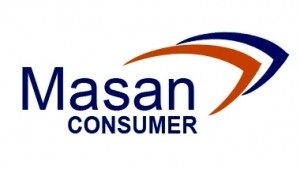Dateline Southeast Asia
Obesity rate growing faster in Asean than in weighty Western countries

Based on World Health Organisation figures, the EIU found that Indonesia and Malaysia experienced a 33% increase in the number of obese individuals, while the number swelled in Vietnam by 38% and grew by 27% in Thailand. Singapore and the Philippines both saw mid-twenties percentage rates of obesity growth.
Over the same period, the number of obese individuals in Britain and America grew by 10% and 8% respectively. Japan’s obesity rate stood slightly higher, according to the figures.
The study indicates that rates of obesity are rising faster in many lower- and middle-income countries, as compared to that in higher-income countries, and that childhood obesity is a particular concern in these countries.
Simon Baptist, the EIU’s chief economist, said that more evidence was needed on the economic impact of obesity in Asean.
“The current prevalence of obesity in many Asean countries is low by global standards—although with some exceptions for childhood obesity—but the rate is rising fast and the large populations of some countries mean that they have some of the largest numbers of overweight and obese people,” said Dr Baptist.
“Initial research indicates that childhood obesity rates are growing faster in the ‘Asean Six’ than in Japan, the UK and USA.”
It also showed that obesity rates in Asean’s six biggest economies are generally higher in countries with higher GDP per capita.
“Continued and rapid economic growth is therefore expected to rapidly increase the prevalence of obesity in these countries. Economic growth is typically accompanied by increased urbanisation, which provides easier access to food that is high in refined carbohydrates, saturated fat and sugar, and low in fibre—all which have been linked with obesity,” said Dr Baptist.
Being overweight or obese increases an individual’s risk of diseases and conditions such as heart disease or stroke, Type 2 diabetes and some cancers. The EIU inception study points to research that shows that South-East Asia is already facing an epidemic of chronic, non-communicable diseases, which now account for 60% of deaths in the region.
“Obesity is shaping up to be the number one risk factor impacting health, more so than infectious diseases that we in the healthcare sector worry about,” said Zee Yoong Kang, chief executive of Singapore’s Health Promotion Board.
“If we do not address obesity, we’ll see a huge epidemic of chronic conditions, especially diabetes. Governments need to be aware that this would be the number one healthcare challenge that we could face over the next two to three decades,” said Zee.
The report was prepared by the EIU for a study commissioned by the Asia Roundtable on Food Innovation for Improved Nutrition (ARoFIIN) and the Health Promotion Board of Singapore.
Key findings from the inception report have been presented to government, regulators, academia, civil society and the food industry from around the Asian region at the official launch of the study, by the EIU at the recently concluded second annual ARoFIIN roundtable held in Singapore.
ARoFIIN is convened by the Health Promotion Board, the Agency for Science, Research and Technology (A*STAR), the Singapore Institute for Clinical Sciences and Food Industry Asia.
More stories from Southeast Asia
New Singapore food regulations come into effect
Amendments to Singapore’s food regulations have now come into force, according to a circular from the Agri-Food & Veterinary Authority of Singapore.
The amendments contain measures expected to facilitate trade including the provision for the use of advantame, a new sweetening agent, in foods, and bovine lactoferrin, a new ingredient in infant formulas, at levels of up to 100 mg/100 ml.
Also included is a requirement that food products labelled “organic” must be certified as organic under an inspection and certification system that complies with the Codex guidelines, or similar.
Other changes include the prohibition of the import, sale and advertisement of raw milk for direct human consumption; and provision for the use of the generic term “modified starches” for labelling purposes.
The amendments can be reviewed on the AVA web site.
US investor sells last of its shares in Vietnam’s biggest F&B brand
American private equity fund KKR has now fully divested its interest in Masan Consumer Corporation after selling the remainder of its shares to parent Masan Group Corporation for an undisclosed price.
The final sell-off comes five years after KKR’s purchase of Vietnam's leading diversified branded food and beverage company became the largest private equity investment in Vietnam’s history.
KKR first invested US$159 million in Masan Consumer in 2011 with a second follow-on investment of US$200 million in 2013.
Masan Consumer is currently the market leader in Vietnam’s seasonings, convenience foods and instant coffee categories and and owns some of the country’s most recognised consumer brands.
Since KKR entered into partnership with Masan Consumer in 2011, the company has grown in the wake of changing consumption trends driven by Vietnam’s fast-growing middle-classes.
"KKR's investment and partnership with Masan Group has supported the transformation of our leading consumer platform and reaching our goal of having a Masan product in every Vietnamese household,” said Seokhee Won, chief executive of Masan Consumer.
The announcement comes after Masan Group signed a strategic deal last month with Singapore-based Singha Asia Holdings, a unit of Thailand's Boon Rawd Brewery, to sell a quarter of Masan Consumer for US$1.05bn and one-third of its own brewery unit for US$50m.
Singapore company offers monitoring service for packaging laws
A service to monitor Asia-Pacific packaging-related legislation that offers real-time updates has launched in Singapore.
Its backer, EP Resources, has been tracking and reporting on environmental legislation in Asia since 2007, and says the launch will meet a growing need for a comprehensive and up-to-date library.
EP Resources has so far amassed a database of more than 235 active environmental legislative instruments to offer a customised monitoring service to help companies comply with regional laws through the Asian Legislation Monitoring Service.
The service covers product-specific legislation, such as ROhs, WEEE-related regulations, and CE compliance. Subscribers can customise their package according to countries of interest and area of legislation.
It also provides updates on trade legislation, including rules of origin and tariff rates for AFTA, ChAFTA and the AEC.
Philippines opens innovation centre to take food development to the provinces
A food innovation centre has been established through a partnership between the Philippines Department of Science and Technology and Mariano Marcos State University in Ilocos Norte.
The centre will function as a research and development hub outside Manila for food production and the processing of crops into high value products.
“With the creation of the Food Innovation Centre here in Ilocos Norte, we shift opportunities from Manila to the countryside and increase economic development in the regions. The Filipinos are blessed because of their creativity to produce new products through science and technology,” said science chief Mario G. Montejo.
The science department is aiming to develop the Filipino food processing industry into one that can manufacture around 4,000 new products each year.
So far, it has committed to develop around 2,000 new products from a variety of agricultural crops, Montejo said.
“Through this initiative we will be able to encourage business owners to go into the food processing industry since we have the technology business incubator programme that will support this,” said the university’s Fe R. Franco.














